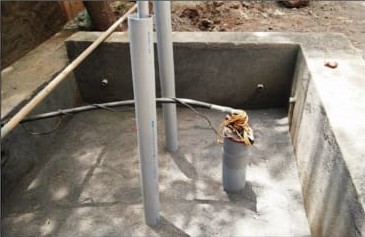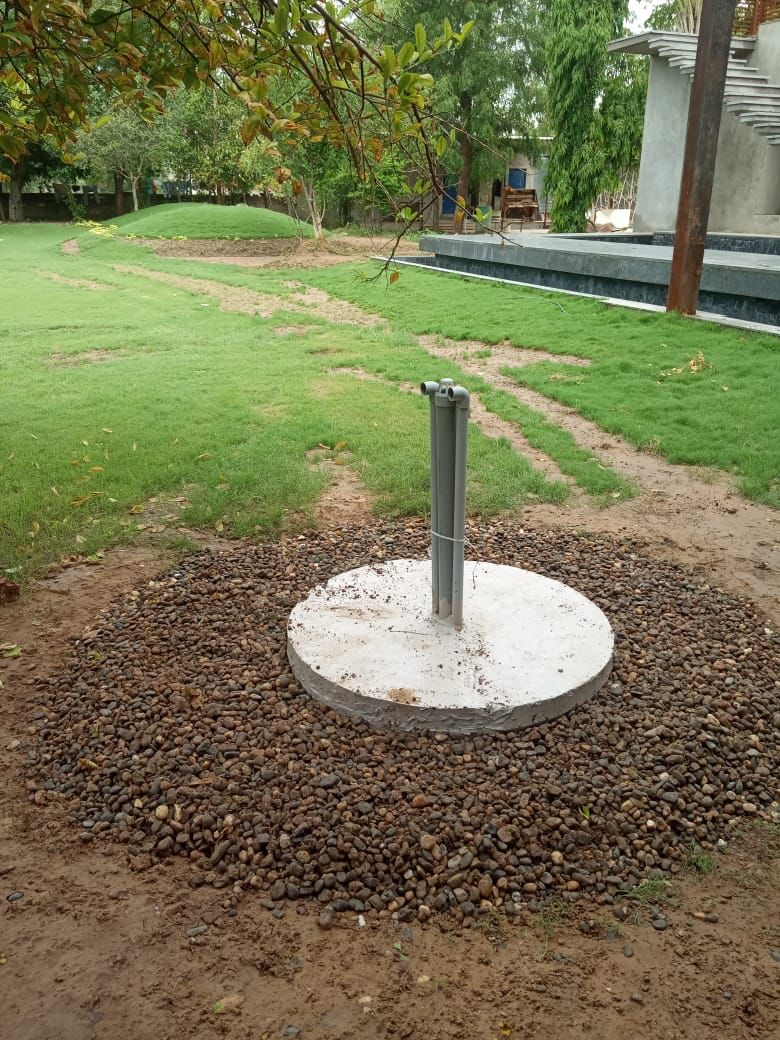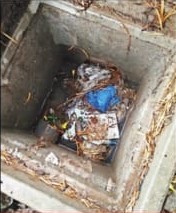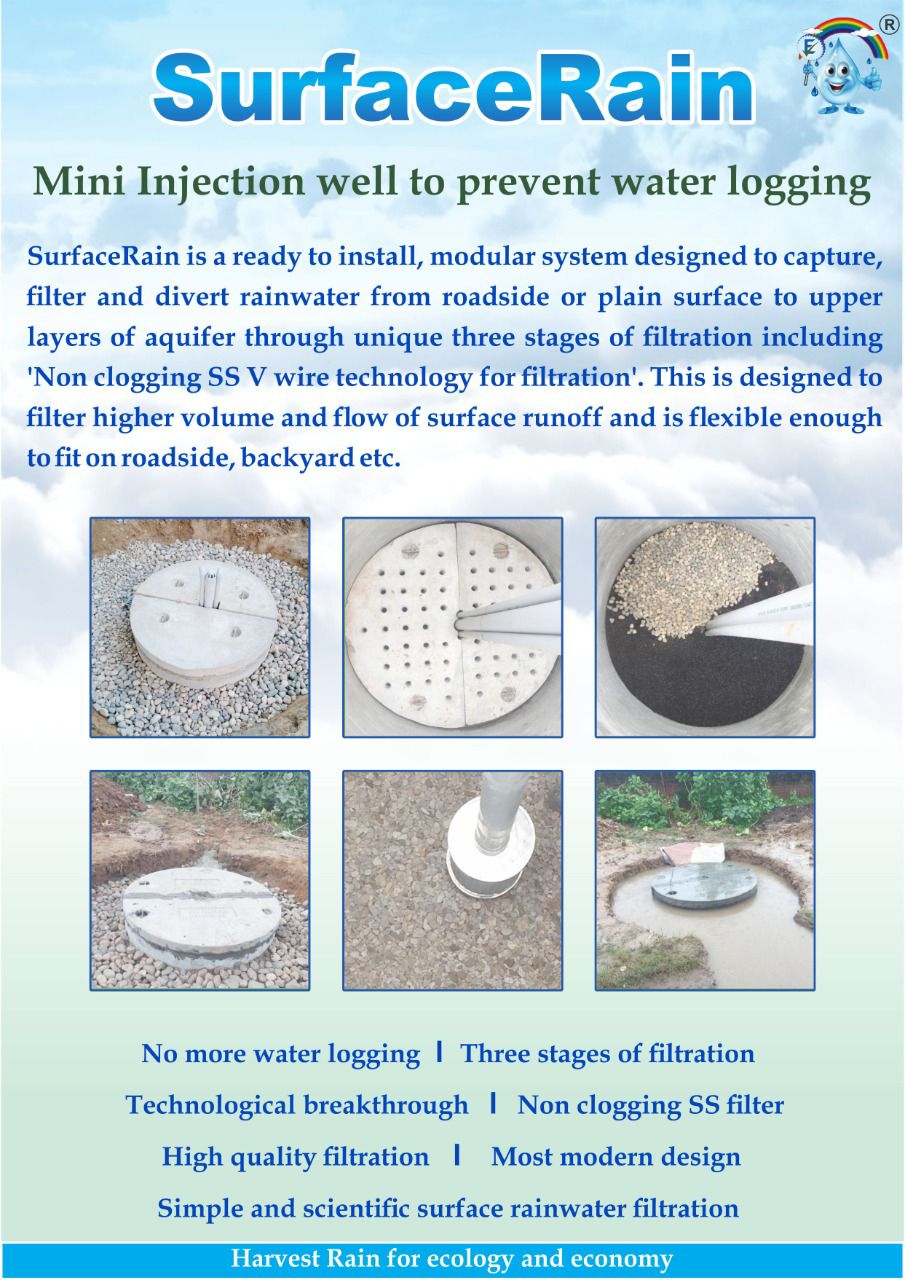In the numerous site visits to residential, commercial, and even government building complexes in Pune region, the Bhujal Abhiyan team has observed that the maintenance of rainwater harvesting (RWH) structures and filters has been neglected.
This has often resulted in dysfunctional rainwater harvesting structures, which adds to the city’s water woes.
Not only does the unkempt structure prevent artificial groundwater recharge but also may result in groundwater contamination, a cause for serious concern.

Photo Courtesy: Times News Network
According to the Bhujal Abhiyan team, the common- issues observed were that the rainwater filters were not cleaned, the borewells were silted, the electric pumps were not serviced, the catchment areas including terraces had all kinds of harmful rusted materials, garbage lying around. There were also no screens to prevent dirt and waste from entering the pipelines and filter pits.
Speaking to TOI, members of Bhujal Abhiyan share some basic do’s and don’ts of rainwater harvesting maintenance” for the reference of building managers, supervisors, committee members and residents in general.
This is in reference to the TOI report, ‘Why Pune is still clueless about rainwater harvesting’ (June 14). The bigger problem is that of groundwater recharge. We are losing a lot of rainwater, which runs into drains due to concreting of roads and other spaces. This issue deserves more of our attention. It is time our government agencies make rules to ensure groundwater recharging is compulsory. They must also follow these rules themselves. It is time we took the right measures before it is too late to mend our ways-Anand Kishore

I was stunned to read that only a few thousand housing societies in Pune have rainwater recharging pits. That’s simply not enough. How is PMC planning to increase this number? Also, does the civic body have a plan to regulate water use at construction sites? How much water does it take to lay a concrete road? And does this water come from a renewable source? Worryingly, all construction and road-building activities are carried out during the summer months, when supply is already strained. In our rush to finish projects, we are not even thinking of the water used during road repairs. Civic bodies should find a way to store rainwater for future use. I would love to see the day we announce a landmark water conservation project, instead of a new bridge or road that nobody wants – ST Natraj

Photo Courtesy: Times News Network
If rainwater harvesting is mandatory for all new building permissions, why is PMC not carrying our routine inspections of all new structures? The civic body doesn’t have a long-term plan to fix Pune’s water shortage. In the future, water shortage will not be a seasonal problem. It will continue well into the monsoon as we replace our old buildings with new taller and bigger structures. This pace of redevelopment is alarming. At least 100 people now need water from the same location that before housed only 50 people. The PMC, instead of studying viability, seems to be happy just handing out these permissions. Our political representatives and civic officials seem to think these shortages can be handled by sending water tankers. But one day the tankers too will run out of water. It’s a scary situation in Pune – Anil Shridhar

Rainwater harvesting won’t be enough for a city like Pune, where thousands of residents continue to waste precious water. This wastage should be met with high fines. The only way we can fine people is through installing water meters. PMC and PCMC should launch special drives to install meters in all large housing societies and businesses. Malls should be given notices if they are wasting water. Should we reduce the number of toilets and bathrooms inside malls? Should we automate all the taps inside these bathrooms?! request civic officials to carry out checks of all malls in their areas and observe if they have water conservation measures installed and urge them to implement some-Jayanth M
DO’S
- Prevent the first couple of rainfall spells from entering the RWH filter and recharge structures as they contain a lot of dust, clay, silt, and other unwanted material, which can clog the filters and aquifers. Use of 2-way back flush valve is recommended.
- Annual upkeep schedule (pre-monsoon and post- monsoon) should be prepared and shared with housekeeping agency, vendor for timely cleaning of terraces, screens, pipelines, filters, and all areas from where rainwater flows into the recharge structures.
- Annual cleaning of the rainwater storage tank should be done.
- Inline filters, which are installed in the pipelines should be back flushed as per design or cleaned by the vendors before and after the monsoon.
- RWH recharge pits with a borewell should contain filter media layers comprising of clean sand, activated charcoal, gravel, and pebbles as per design by Indian Standards, Refer IS 15797 (2008). These layers should be separated by fine mesh screens, which need to be replaced as per their wear and tear. The filter media should be annually cleaned and dried before reinstalling. Note that the activated charcoal layer should be replaced every year.
- Regular testing of the groundwater quality should be done by sending the sample to a NABL-certified lab for checking the standard 17 parameters including E.Coli
- Periodic measurement of the groundwater levels of the borewell and keeping a record of the same is mandatory. This can be done by a long PVC measuring tape, installing a digital water level recorder or by a mobile application from Water Lab, Pune.
- Installing a water meter on the borewell for monitoring of the volume of abstraction of groundwater.
DON’TS
- Don’t allow any raw muddy water or storm sewage water to enter the RWH structures. Only rainwater after passing through the filters should be allowed to enter the RWH structures.
- Don’t use any chemicals for cleaning the terraces, filters
- Don’t allow any oil, contaminants, chemicals, paint etc. to enter the groundwater recharge pits. Contamination of groundwater is an offence and due care should be taken to ensure that it does not happen
- Don’t concretize the open areas in your complex
- Don’t allow sewage water, treated sewage water or grey water to leak into your RWH pipelines, chambers and pits.
- Don’t use any chemicals for cleaning the terraces, filters.
Vardhman Envirotech
India’s Passionate rainwater company
This article is published on: Times of India
We would like to spread this for the benefit of fellow Indians.
